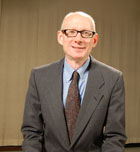How I got interested in generosity and why I stay interested are two different stories. I took up economics because I wanted to work on income inequality, thinking that inheritances are an important factor that make inequality bigger. Surprisingly, Gary Becker’s influential Treatise on the Family argued just the opposite: that altruistically-motivated inheritances made inequality smaller. That hooked my interest and I started working on helping behavior within the family. Not long afterward, in the 1990s, the national debate about welfare reform featured lots of criticism about the system. With so much academic work already underway about what was wrong with welfare and how to change it, I decided to work on why people supported welfare generosity in the first place. Working on that we found data describing contributions to international relief organizations, and got interested in why people give money to help people they do not know in other countries. Reflecting on the three lines of research I had going, I realized that the common theme in the questions I was asking was generosity.
Questions about human generosity “hook” people in many different disciplines–social science, natural science, the humanities, religion. Why that is, and the energy of many people from many perspectives asking the same questions about generosity, implies that questions about generosity are indeed big questions–that is why I stay interested in investigating generosity.




